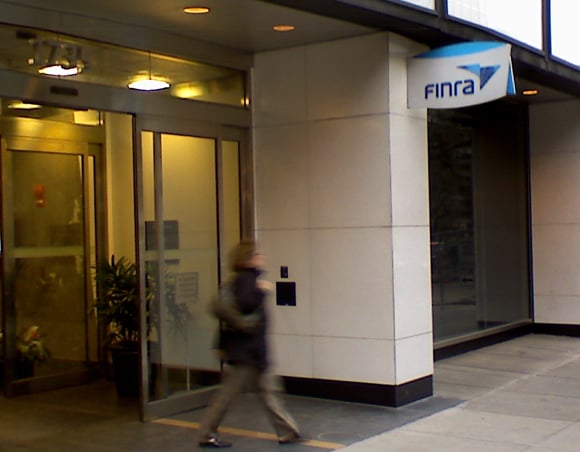Finra wants broker-dealers that sell risky Regulation D private placements to engage in a more vigorous due diligence process, “pushing and pulling” for information about the products, according to Richard Ketchum, chairman and chief executive of the Financial Industry Regulatory Authority Inc.
Finra wants broker-dealers that sell risky Regulation D private placements to engage in a more vigorous due diligence process, “pushing and pulling” for information about the products, according to Richard Ketchum, chairman and chief executive of the Financial Industry Regulatory Authority Inc.
Recognizing that levels of due diligence will vary from deal to deal, broker-dealers must have an active role in the scrutiny of a Reg D offering, he said.
“In those situations where you're providing advice or actively selling a private placement, it's not good enough to just read the document. If that document raises red flags or doesn't answer questions, it's not good enough to go to a canned information session,” Mr. Ketchum said in a press conference at Finra's annual meeting in Washington. “You need to push and pull.”
The issue of broker-dealers' conducting adequate due diligence when selling private placements has come to the fore since two series of deals, Medical Capital Holdings Inc. and Provident Royalties LLC, collapsed and were charged in 2009 with fraud by the Securities and Exchange Commission.
Dozens of broker-dealers sold the two deals, which raised about $2.7 billion combined, and relied on third-party firms to write due diligence reports about the offerings.
Broker-dealers also received a fee of 1% of the sale, known as a “due-diligence fee,” even though the broker-dealers commonly did no due diligence and relied on the outside analyst's report, which was often paid for by the product sponsor.
Analysts and broker-dealers commonly defend the practice and shoot down notions that a conflict of interest exists when the product sponsor pays for the due-diligence report.
Mr. Ketchum, however, made it clear in his comments that broker-dealers need to go the extra mile regarding due diligence when they sell private placements.
“Whether you're getting that information from people who have somewhat of an underwriting relationship, or whether you're getting that from the issuer, you need to be confident, with the questions around it, that the investment is not going to go up in smoke,” said Mr. Ketchum.
Asked about Finra's specific expectations for broker-dealers and their reps concerning due diligence, and whether firm executives should visit oil and gas wells before selling such partnerships, Mr. Ketchum replied that there are “instances when it's a good idea to visit some of the key production areas of a partnership.”
“But a lot of that comes down to facts and circumstances, such as how aggressively you're selling it, what's the quality of the disclosure, who's the accountant and what professional firms are performing some level of diligence beyond.”
Mr. Ketchum added: “It's just that the firms need to push the envelope” about due diligence. “We're going to take into account that they've made an honest decision, gotten some answers and there don't appear to be red flags. We don't bring actions against every firm that sold Med Cap and Provident, even though there were red flags there.
“We want to recognize where there's limited disclosure and appears to be a speculative investment, you need to push to try to get more information,” Mr. Ketchum said. “Document what you've done, and we're probably going to be satisfied with it” as long as the firm recognizes any potential red flags, he said.







